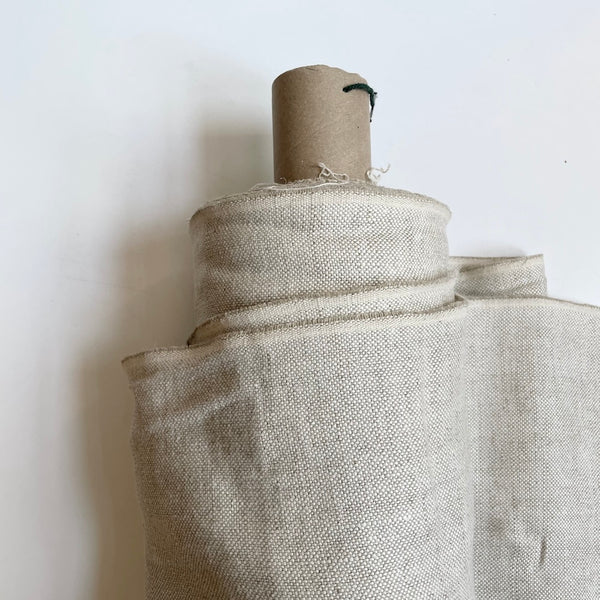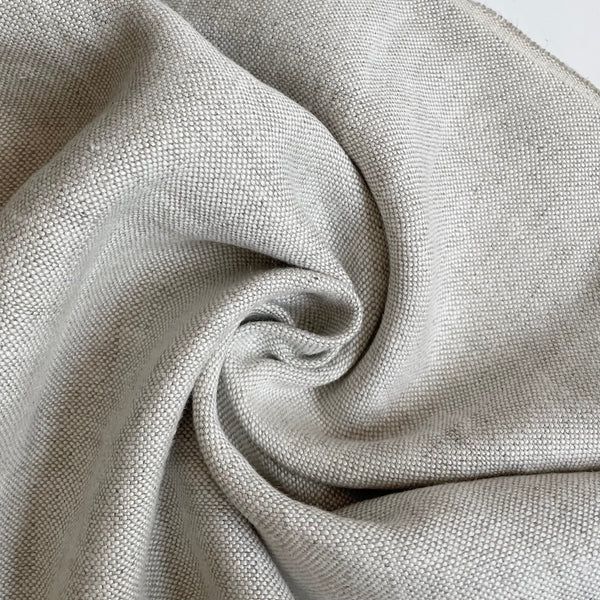Merchant & Mills Fabric : Upholstery Linen - White Sands
Upholstery weight laundered linen, with industry rated rub tests.
This linen is produced in small batches in Eastern Europe where there is a strong heritage of spinning and weaving linen fabric.
Semi-natural 420 can be used in the home for loose covers, curtains, cushions, and upholstery. Although this is our heaviest linen it is still soft and malleable so would work well for jackets and coats like the Strand, Foreman, Haremere, or even a sleeveless Trapeze.
- 100% linen
- A cool toned beige
- 145cm wide
- 420gsm or 12.5oz
- 50,000 rubs (Martindale rub test)
- If you are pre-washing, we recommend that you overlock all edges of this cloth beforehand to prevent fraying.
- Wash at 30 degrees with a non bio detergent. Do not tumble. Shake out and dry flat. Linen will always seize up after washing but as soon as you start to use/wear it the fibres relax again.
- If you are using this linen for curtains we recommend using a lining to prevent fading.
- This linen is Oeko-Tex certified.
More about linen:
Linen is naturally stain resistant, does not pile, and is moth repellent. It is easy to wash as it can sustain high temperatures, is has very little if no shrinkage and is very strong.
It is anti-bacterial, anti-fungal, hypo allergenic and thermoregulating, it will also absorb up 20% moisture before feeling damp.
As the linen fibres have low elasticity (which causes it to crease) it will wear in any areas that are repeatedly folded in the same place for a long time, however it does have much better abrasion resistance than say cotton.
Eco Credentials:
Flax is a strong plant best grown in northern Europe. It needs little or no fertilisers and due to the local climate, little extra water. It doesn’t really require many pesticides either as it can grow in poor quality soil. The Advisory Commission Report to the European Parliament stated that flax cultivation has positive effects on eco-system diversity as it allows for an “environmental pause”. One hectare of flax can retain 3.7 tonnes of CO2. Every part of the plant is used, what isn’t used to produce linen can be used to make linseed oil, paper, cattle feed or even soap.
Linen is therefore almost naturally organic. It is completely biodegradable, recyclable and due to its natural absorbency, it requires less dye than cotton. Linen therefore scores high on the ecological chart.








